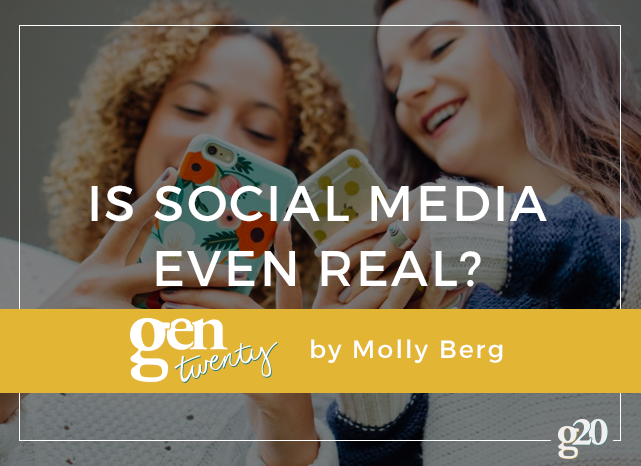
Earlier this month, social media star Essena O’Neill made headlines when she quit Instagram. O’Neill, who has over 500,000 followers on Instagram and Tumblr, said that her posts weren’t real life. She was ready to make a lifestyle change.
She even admitted she was miserable on social media. In a video she posted on her website, she said, “You know how good it is just to have a day and not think about anyone else, what anyone else is doing? I was miserable because of numbers I saw on a screen. Even with all these followers, I don’t know what is real and what is not.”
O’Neill, who has been posting for over three years, has since deleted many of her pictures and changed the captions on some. In those captions, she admitted things like she took 50 takes of a picture, or she was paid by a company to wear certain clothes. She decided to take an honest approach with her fans about the way she was doing things.
While O’Neill’s actions are refreshing, they also beg the question:
Is social media even real? Our simple answer is yes, it is.
Below we give four reasons for why social media is often fact and not fiction.
1. You are in control of the post. Unless you’re paid to have sponsored content, your social media accounts are yours. How often in life do you get to post something uncensored? Blogs, Facebook posts, etc help us write the things we want in an unfiltered way. Only when we accept requests from others does that voice get overshadowed.
2. You can pick which platforms you use. Some people use Tumblr religiously. Others only stick to Facebook. We can choose to keep our stories and posts to whatever sites we like. That freedom of choice helps, especially if we like microblogging on Twitter or posting images on Instagram.
3. You can edit posts later. Many sites let you edit your posts or photos, especially if you made a mistake. Even after creating content, you can often change it any time you’d like. You can change your mind whenever you want.
4. Social media affects encounters in real life. It’s common for friends to bring up social media posts in conversation. If we mentioned exciting news online, they’re likely to ask us about it in person. Most people don’t normally post fictitious information, especially since they’ll get called out about it by friends.
Of course, O’Neill makes other good arguments in her latest video. They are that people should stop using their phones so frequently. Instead of living their lives, they are living behind screens. There’s certainly truth to that, since many of us use phones, computers or tablets several hours each day.
While we believe social media is mostly real, it’s nice to take a break every once in a while. Social media is great, but like everything, it’s only good in moderation.
What’s your take on social media? Fact or fiction? Post in the comments!
